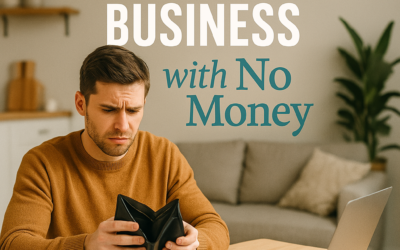Understanding Intellectual Property in Business: A Guide for Small Businesses
In today’s fast-paced market, protecting your ideas and creations is essential. Intellectual property (IP) gives small businesses a competitive edge by legally safeguarding innovations, brands, and creative works. This guide will walk you through the basics of patents, trademarks, and copyright, and explain how each can help your business thrive.
What Is Intellectual Property?
Intellectual property refers to a set of legal rights that allow creators—whether individuals or businesses—to benefit from their inventions and ideas. These rights help you control how your work is used and ensure that you can reap the rewards of your creativity. The main types of intellectual property include:
- Patents: Protect innovative products and processes.
- Trademarks: Safeguard brand names, logos, and slogans.
- Copyright: Defend original works like books, music, and software.
Patents: Protecting Your Innovations
Patents give inventors and businesses exclusive rights to use, sell, and license their inventions for a limited period, usually 20 years. This protection is vital for businesses investing in research and development, as it prevents competitors from copying new products or processes.
For instance, the pharmaceutical industry relies on patents to secure investment in new drugs. Pfizer’s patent for Viagra is a classic example, allowing the company to enjoy market exclusivity and recoup its research investments.
Trademarks: Building Your Brand Identity
Trademarks are symbols, names, or phrases that distinguish your business and products from competitors. They are crucial for building a recognizable brand and establishing customer trust. A strong trademark makes your business memorable and helps you stand out in the marketplace.
Consider well-known examples like Nike’s “Swoosh” logo or the unique shape of the Coca-Cola bottle. These trademarks are instantly recognizable and serve as key elements in these companies’ branding strategies.
Copyright: Safeguarding Your Creative Works
Copyright protects original creative works, such as literary, musical, and artistic creations, giving you exclusive rights to reproduce, distribute, and display your work. Unlike patents, copyright protection is automatic as soon as your work is created—though registering your copyright can offer additional legal benefits.
A notable copyright case involved Apple Corps (the Beatles’ record label) and Apple Inc. over the use of the “Apple” name and logo. This dispute underlines the importance of clear copyright agreements and vigilance in managing your intellectual property.
Key Takeaways for Small Businesses
- Patents: Secure your inventions and keep competitors at bay.
- Trademarks: Enhance brand recognition and build lasting consumer trust.
- Copyright: Automatically protect your creative works and consider registration for extra security.
Conclusion
Intellectual property is a powerful asset for any business. By understanding and utilizing patents, trademarks, and copyright effectively, you can protect your innovations, strengthen your brand, and support long-term growth. As the business world evolves, staying informed about IP laws is key to maximizing your competitive advantage.
If you’re ready to secure your ideas and boost your business’s success, consider consulting with an IP attorney or specialist. They can help you develop a tailored strategy that meets your unique needs and goals.









